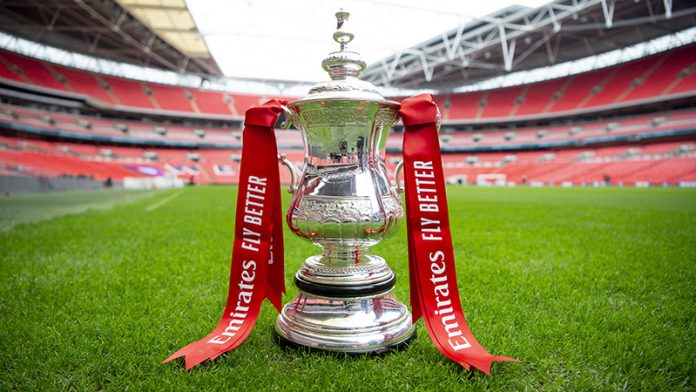Holders Manchester United visit Arsenal in the big tie of the round on Sunday afternoon but games get underway on Thursday with several lower league sides hopeful of an upset
The FA Cup, one of football’s oldest and most celebrated tournaments, takes center stage this weekend as Premier League heavyweights join the fray in the third round. The competition has long been a beacon for underdogs and a stage for footballing glory. However, the financial rewards it offers remain modest compared to other elite competitions. Here, we break down the prize money for each round and explore the economic dynamics that make the FA Cup unique.
Premier League Teams Enter the Third Round
The FA Cup third round officially begins on Thursday, with Premier League clubs entering the competition. Notable fixtures include Manchester United visiting Arsenal in a blockbuster clash, while Everton host Peterborough in what could be the final FA Cup game at Goodison Park. Non-league sides like Dagenham and Redbridge face the opportunity to shock the footballing world as they take on Millwall on Monday.
While the prestige of lifting the trophy remains undiminished, the financial rewards pale in comparison to other competitions. Clubs progressing past this weekend’s ties will pocket £115,000 in prize money—a significant sum for lower-league sides but a drop in the ocean for Premier League giants.
Prize Money by Round
Here’s how the FA Cup prize money is distributed for the 2024/25 season:
- Extra Preliminary Round Winners: £1,125
- Preliminary Round Winners: £1,444
- First Round Proper Winners: £45,000
- Third Round Proper Winners: £115,000
- Quarter-Final Winners: £450,000
- Semi-Final Winners: £1,000,000
- Semi-Final Losers: £500,000
- Final Winners: £2,000,000
- Final Runners-Up: £1,000,000
The cumulative earnings for the eventual winner, assuming progression through each round, total £3.65 million. This figure doesn’t include additional revenue streams like broadcasting rights and gate receipts, which are crucial for smaller clubs hosting Premier League teams.
Comparisons with Elite Competitions
The FA Cup’s financial rewards are dwarfed by other competitions. The UEFA Champions League, for example, offers winners a minimum of £60 million, with the total package often exceeding £100 million when factoring in sponsorships and broadcasting rights. Similarly, Premier League champions earn upwards of £60 million in prize money alone, before accounting for lucrative TV deals.
These figures highlight the FA Cup’s comparatively modest financial stakes, even as it continues to captivate fans and players alike. For lower-league sides, however, the Cup remains a vital source of revenue, with gate receipts from hosting top-tier clubs often equaling a season’s worth of income.
No Replays: High-Stakes Matches
In a change from traditional FA Cup formats, third-round ties this season will not feature replays. Matches that end in a draw after 90 minutes will go to extra time and, if needed, penalties. This rule ensures faster progression in the tournament and limits fixture congestion for top-flight clubs.
The lack of replays has pros and cons. While it eliminates the financial windfall for smaller clubs from hosting lucrative replay matches, it also levels the playing field in single-elimination scenarios.
Iconic Moments and Underdog Dreams
Manchester United enters the tournament as the defending champions after defeating Manchester City in last year’s final at Wembley. The Red Devils’ triumph underscored the competition’s enduring appeal, even for clubs with significant resources and aspirations in multiple competitions.
Lower-league sides, meanwhile, look to create their own fairy-tale moments. Clubs like Tamworth and Morecambe, facing Tottenham and Chelsea respectively, aim to emulate the famous giant-killings that define the FA Cup’s charm.
Economic Importance for Smaller Clubs
For non-league and lower-tier teams, the FA Cup is as much about financial survival as it is about glory. Hosting a Premier League team can provide significant income through gate receipts, merchandise sales, and media coverage. Clubs like Tamworth, playing against Tottenham, or Dagenham and Redbridge, facing Millwall, could see their annual budgets transformed by a successful Cup run.
The FA Cup also offers a platform for players from smaller clubs to showcase their talent on a national stage, often resulting in moves to higher divisions or even international recognition.
Big Guns Look to Avoid Upsets
Premier League teams must navigate the potential pitfalls of early-round upsets. Arsenal, facing Manchester United in a marquee fixture, must balance their squad as they compete on multiple fronts. Meanwhile, Chelsea and Tottenham will look to avoid the fate of past Premier League clubs who have succumbed to lower-tier opposition.
READ NEXT:


